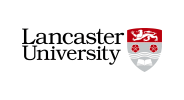© Pint of Science, 2025. All rights reserved.
The universe always provides new challenges for researchers. Understanding its phenomena is certainly not trivial, and explaining it to those who are not scientists is even more complex.
So, join us for an evening of talks that explore the universe through stories.
So, join us for an evening of talks that explore the universe through stories.
The Eye of the Geomagnetic Storm: Living Inside a Gigantic Particle Accelerator
Dr Maria Walach
(Senior Research Associate, Lancaster University)
In the magnetic field that surrounds Earth, thousands of satellites are in orbit, providing the basis for GPS navigation and satellite internet. The number of launched satellites is growing rapidly, with over 1000 launched in 2022 alone, but they are vulnerable. A strong geomagnetic storm can knock satellites out of orbit, causing them to crash down to Earth. In this talk, I will uncover how space weather happens, how it affects our technologies and what we can do about it.
Searching for dark matter using quantum technology
Professor Edward Laird
(Professor of Experimental Physics, Lancaster University)
Dark matter makes up eighty percent of every galaxy’s mass. We can see its effects, but its composition remains a mystery. Axions are a promising candidate. These hypothetical particles formed shortly after the Big Bang, congregated in galaxies, and now pass with barely a trace through ordinary matter. To find out if axions exist, the tiny signals they create interacting with our detectors need amplifying. This talk explains how quantum mechanics sets an ultimate limit on the sensitivity that any amplifier can achieve - and how quantum technology also gives us a way to evade that limit.
Spying on Saturn’s ethereal auroras with the Hubble Space Telescope
Dr Joe Kinrade
(Research Fellow in the Space & Planetary Physics group, Lancaster University)
Saturn is a bright neighbour of ours in the night sky, known for its icy rings. But this gas giant also displays powerful ultraviolet auroras at its polar regions, invisible to the naked eye. Dr Joe Kinrade, a research fellow at Lancaster University’s Space & Planetary Physics group, presents a tourist’s guide to Saturn’s auroras and how we image them from afar using the Hubble Space Telescope and Cassini spacecraft missions.
10 Years of Higgs boson discovery and Nobel prize
Harald Fox
(Senior Lecturer at Lancaster University)
The Higgs boson discovery at the LHC at CERN has been in the making for 48 years. It is a story of bright ideas, many puzzle pieces that finally fit together, many failed attempts and finally the discovery, the crowning success of perseverance. This talk will highlight the essential role of the Higgs boson in our understanding of physics laws, why it is so exceptional and how it was finally discovered.
Map data © OpenStreetMap contributors.
